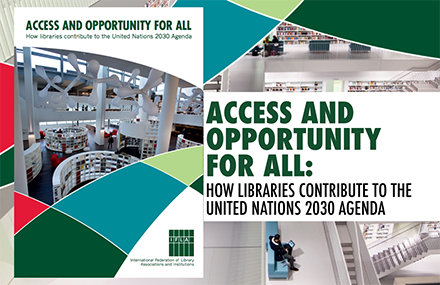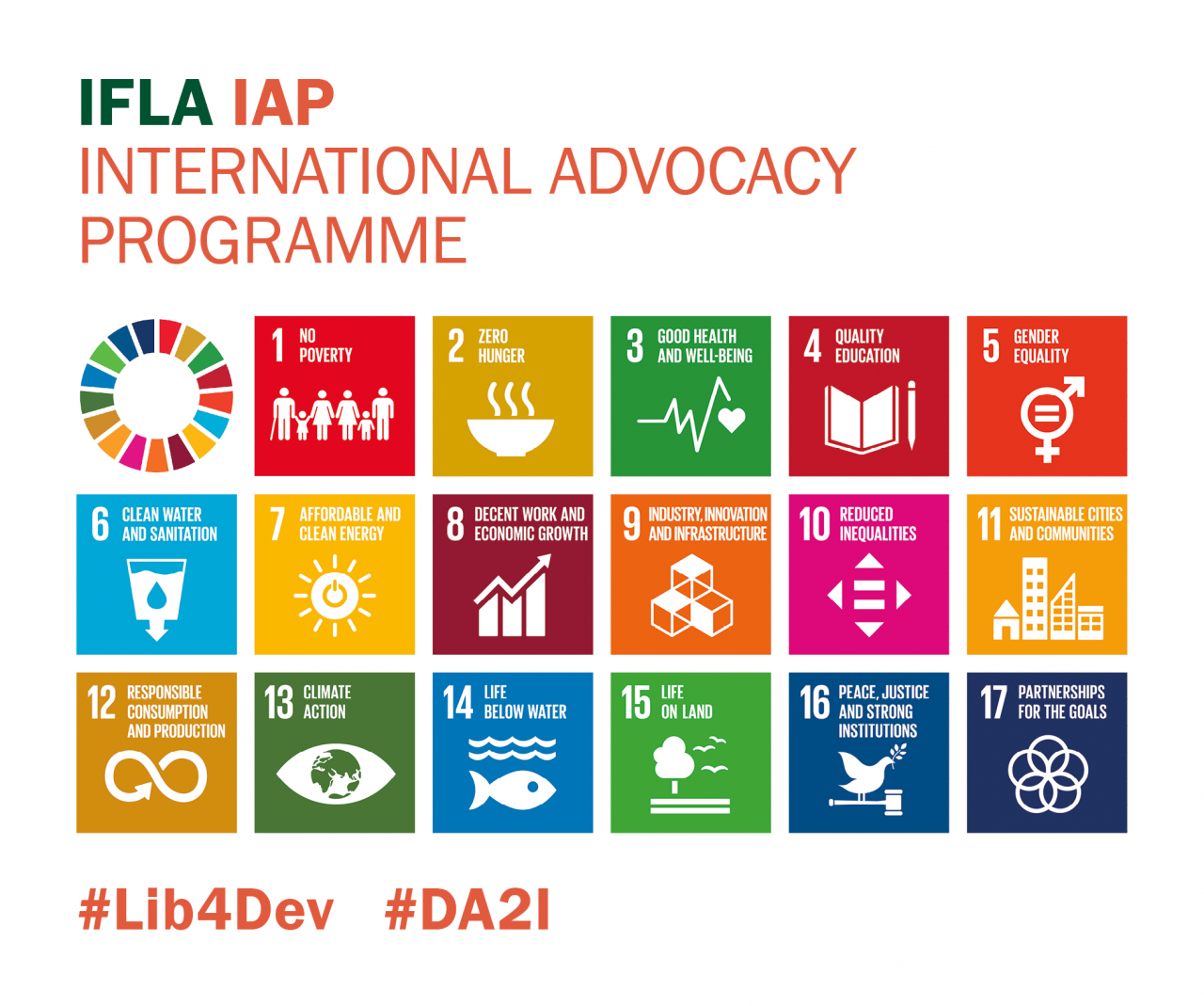IFLA has gathered examples of how libraries are already furthering development along with some recommended actions libraries can take to help achieve specific United Nations Sustainable Development Goals (SDGs).

Libraries further development by helping people get the information they need to access economic opportunity, gender equality, quality education, improve their health or develop their communities.
- Development projects that are working to achieve the Sustainable Development Goals (SDGs) are most effective when they leverage existing resources and local institutions that people already know and trust, such as public libraries, rather than funding new, unproven infrastructure, or investing in narrow, technology-based approaches.
- Libraries have staying power because of ongoing public support and dedicated funding, and therefore governments and development agencies should seek to strengthen and expand the services libraries offer.
- Libraries support initiatives in a variety of fields, including health, agriculture, civic engagement, education, information literacy and others, and have a powerful impact in the community because they are connected to people needs at a local level.
All over the world, libraries combine a trusted, local institution with information access that is critical to driving economic opportunity and community development. Libraries offer a more efficient, smarter way of doing development.
IFLA Statement on Libraries and Development
Access to information is a fundamental human right that can break the cycle of poverty and support sustainable development.
The library is the only place in many communities where people can access information that will help improve their education, develop new skills, find jobs, build businesses, make informed agricultural and health decisions, or gain insights into environmental issues.
Their unique role makes libraries important development partners, both by providing access to information in all formats and by delivering services and programmes that meet the needs for information in a changing and increasingly complex society.
Through the Statement on Libraries and Development, IFLA affirms that:
- Libraries provide opportunity for all
- Libraries empower people for their own self-development
- Libraries offer access to the world’s knowledge
- Librarians provide expert guidance
- Libraries are part of a multistakeholder society
- Libraries must be recognised in development policy frameworks
The Lyon Declaration
The Lyon Declaration is an advocacy document signed by more than 600 organisations, calling upon United Nations Member States to make an international commitment on ensuring that everyone has access to, and is able to understand, use and share the information that is necessary to promote sustainable development and democratic societies.
It states clearly that access to information supports development by empowering people to:
- Exercise their civil, political, economic, social and cultural rights
- Learn and apply new skills
- Make decisions and participate in an active and engaged civil society
- Create community-based solutions to development challenges
- Ensure accountability, transparency, good governance, and empowerment
- Measure progress on public and private commitments on sustainable development.

